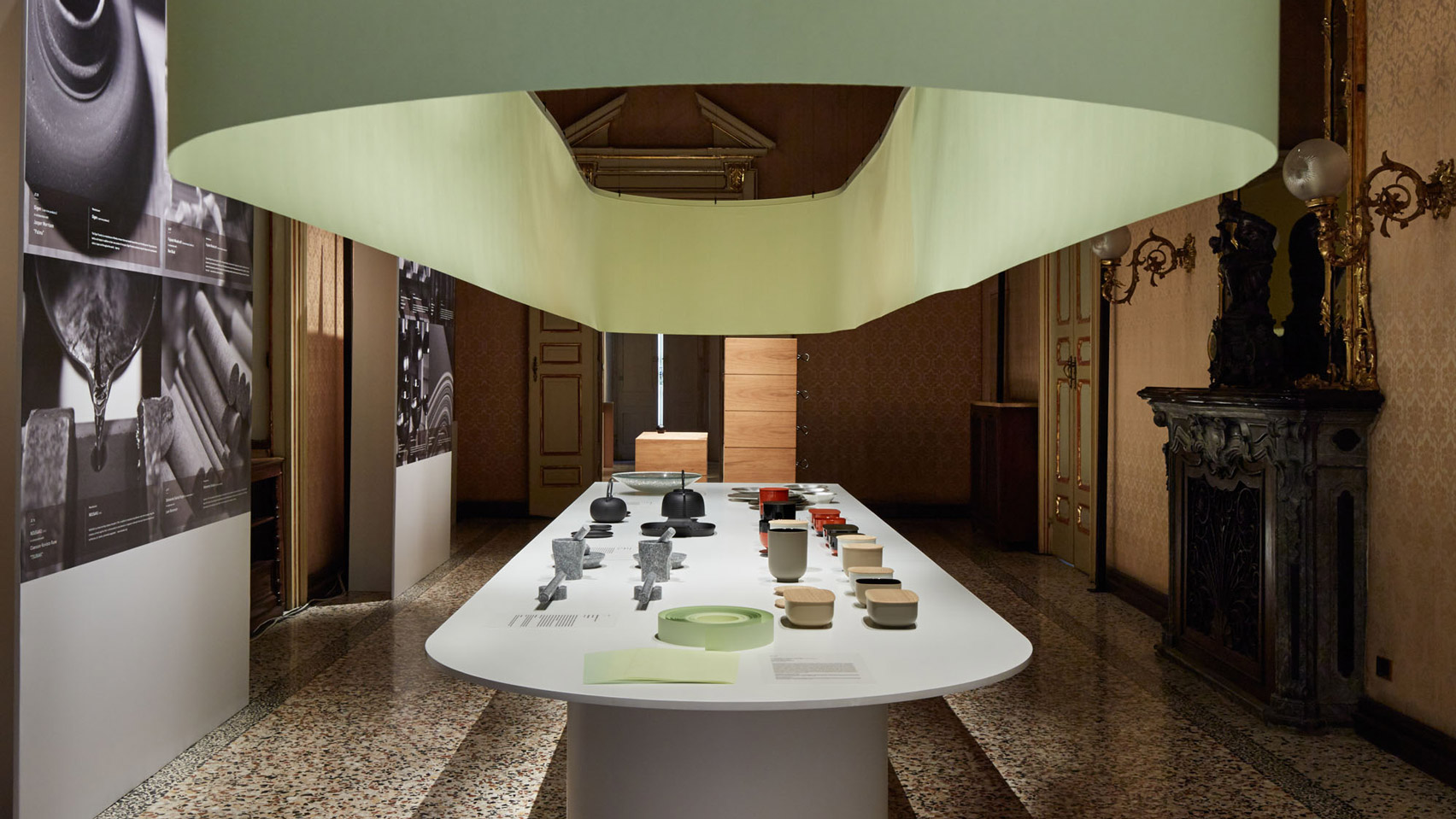
Japan’s unique regional manufacturers are put under the spotlight by Japan Creative, an organisation that has paired them with international designers including Jasper Morrison, Daniel Rybakken and Industrial Facility to create new work.
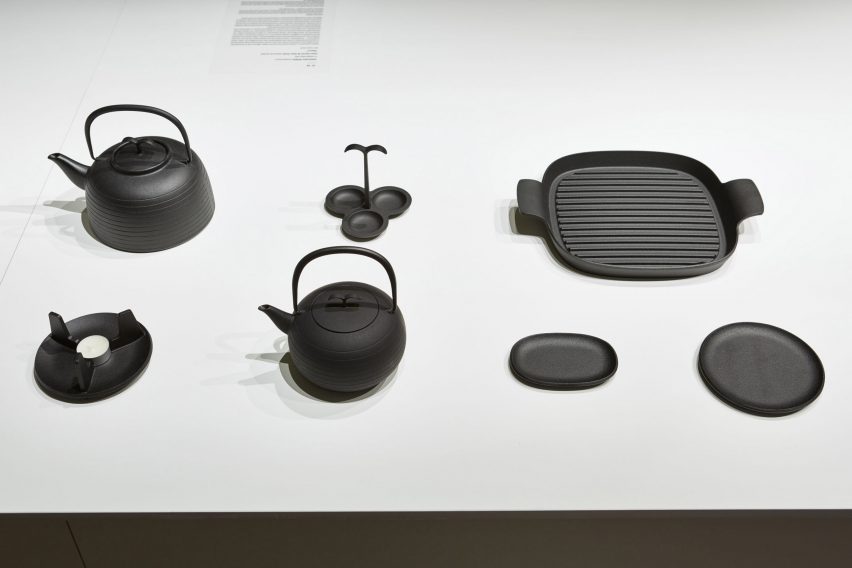
The non-profit organisation exhibited for the second time at this year’s Milan design week, presenting new products based on laquerware from Sabae, paper from Shizuoka, cast iron from Mizusawa and Aji inscription stone from Mount Goken.
In previous years, it has instigated projects like Stefan Diez’ Soba furniture, made using unprocessed bamboo from the groves surrounding manufacturer Taketora in Kochi Prefecture.
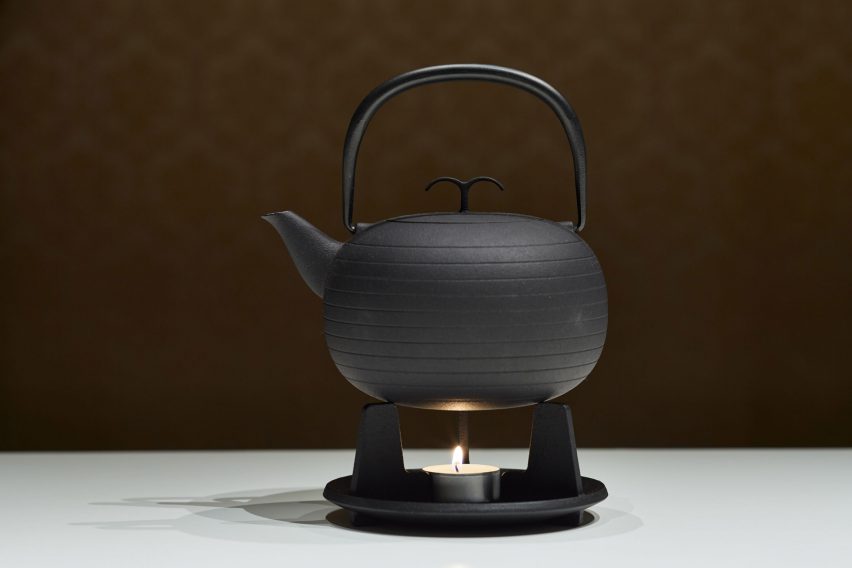
The organisation launched in 2012 and works to bring international attention to Japanese craftsmanship, or “monozukuri”, which locally is already highly valued. Each year it picks three of Japan’s many small specialty manufacturers to focus on, and then selects a designer from overseas to complement each of them.
“Each area has a different character, and it affects the manufacturer’s techniques,” said Maho Masuzaki from Japan Creative, explaining the country’s many diverse specialities.
“We focus on whether the manufacturer has some unique material or technique, not only traditional ones. First we select the manufacturer and then we think about which designer to put together with the company.”
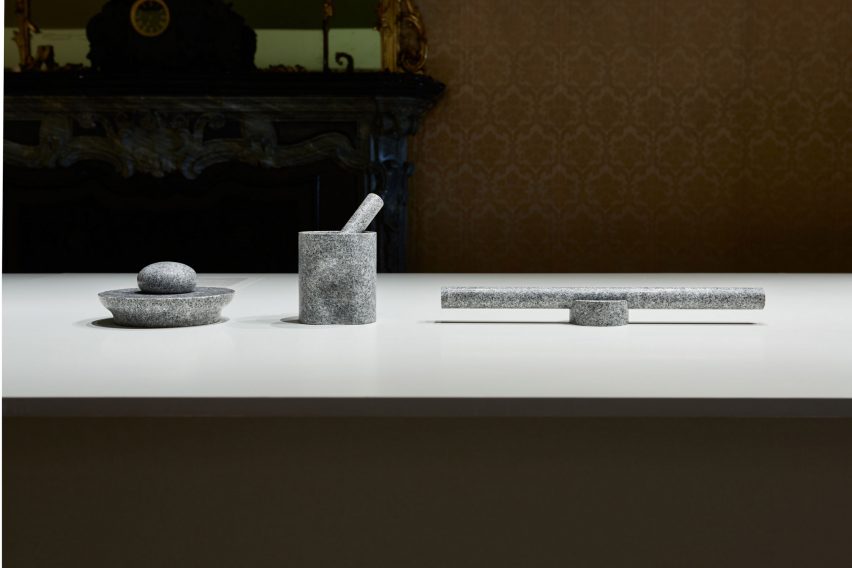
Many of these manufacturers have been in continuous operation for centuries. Industrial Facility worked with Sekisaka to produce the Store vessels based on the manufacturer’s 300-year-old laquerware techniques, while British designer Jasper Morrison expanded on his earlier Palma project, adding a second tea kettle created at cast-iron foundry Oigen.
The manufacturer has been producing this kind of ironware – named Nambu after the former ruling family in the Iwate prefecture – since 1852.
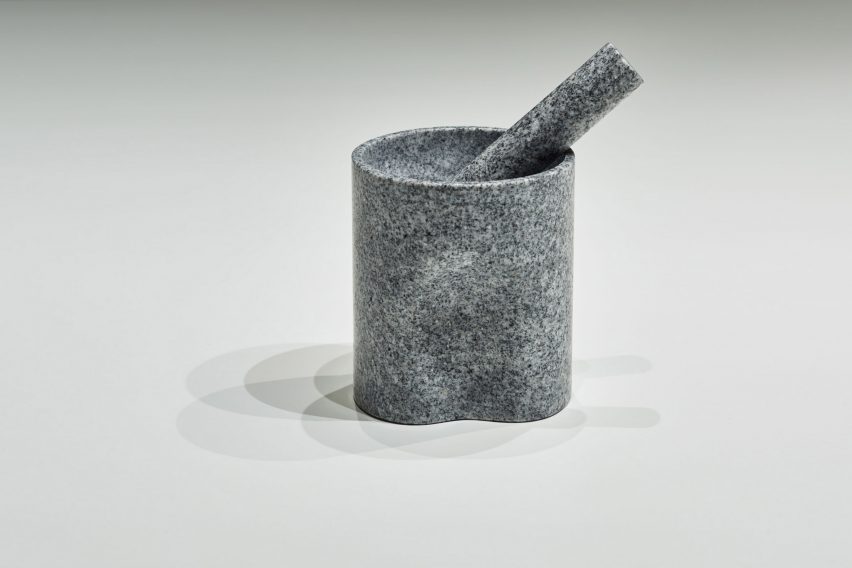
Also included in this year’s new launches were a sound-absorbing hood made by Norwegian designer Daniel Rybakken and the Tokushu Tokai Paper company, and kitchen tools by Leon Ransmeier made using Aji stone by manufacturers Shimamoto Sekizai.
The stone is apparently known as the “diamond of granites” for its texture and sheen, and is usually used in gravestones, but Ransmeier used it in a rolling pin, nutcracker, and mortar and pestle to showcase its potential for “everyday use”.
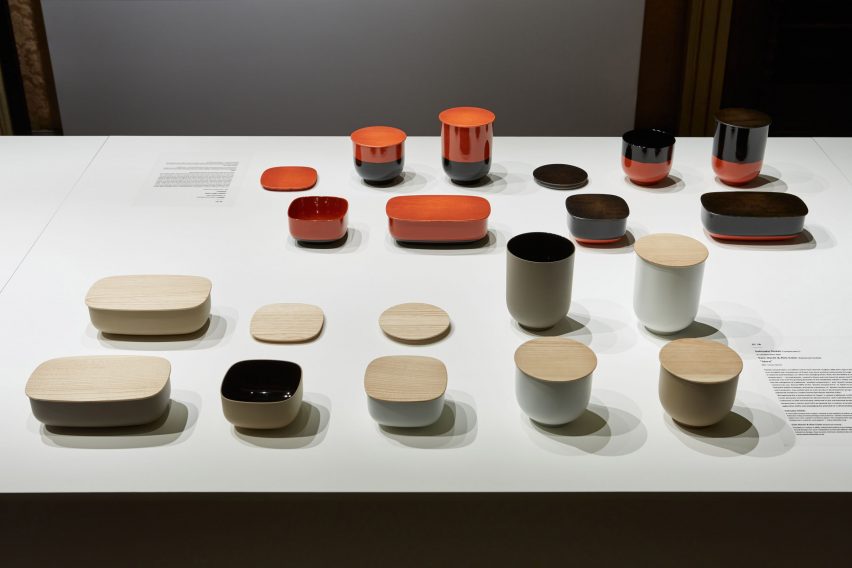
Industrial Facility’s Sam Hecht likened the country to Italy in the way it has managed to preserve its traditional crafts.
“With companies like Sekisaka, it’s very similar to Italy, where they are family companies that are generally handed down through generations,” he said.
“And the thing about family companies is, you can’t just stop. You can’t just close the door and say ‘oh well I’m going to do something else’ – you keep it going by default. So that’s why they have this ability to be able to adapt and to maintain their quality and their interests.”
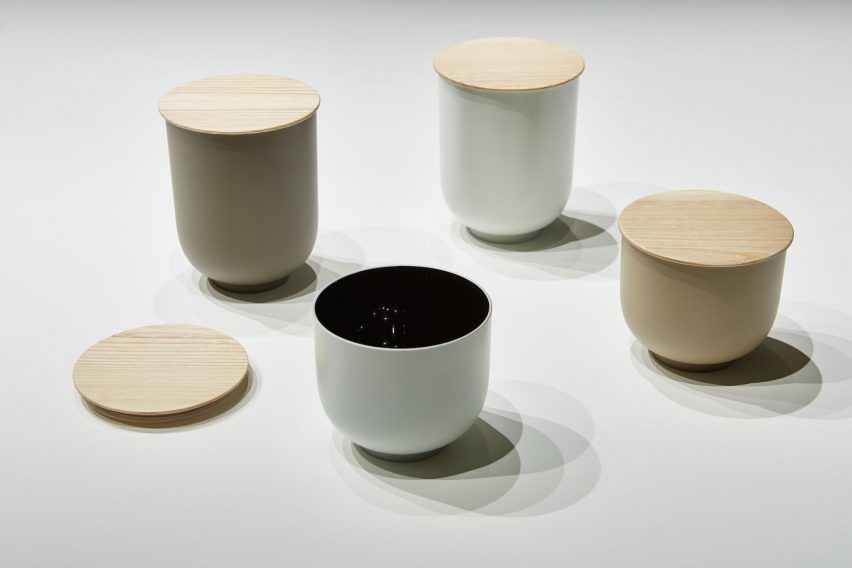
Outside of Japan Creative, the country’s strong craft tradition is a frequent inspiration for designers. Barber and Osgerby worked with regional paper-lantern makers for their Hotaru lighting, while Nendo made a ceramic speaker in partnership with a potter.
Industrial Facility frequently works in Japan, including with the country’s design megastore Muji, which makes its products locally and recently collaborated with a number of artisans to introduce the handmade Tatazumai collection to its stores.
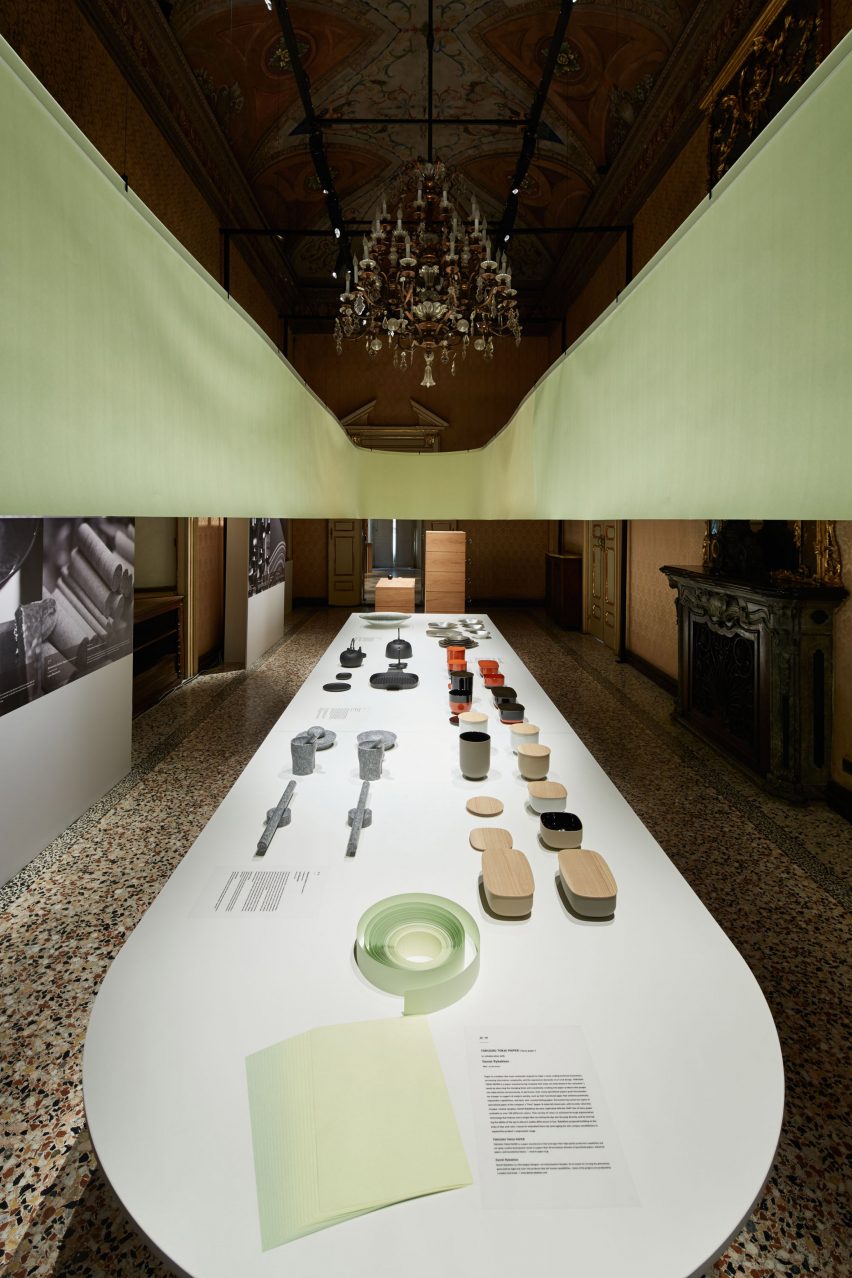
“In Japan I feel the idea of craft – and it doesn’t have to be only handmade, it can be something that is produced in significant numbers, but still the process is crafted – people are really into that,” said Hecht. “There are tons of magazines that are exposing that in Japan, and it’s constantly part of the conversation.”
Japan Creative exhibited its projects during Milan design week at Palazzo Litta, where other works on show included bikes created by Punkt in collaboration with leading design schools. Its previous collaborations include works with Claesson Koivisto Rune, Nacho Carbonell and Inga Sempé.
[“source-ndtv”]





